Transcription of Epistemology, Theory, and Methodology in Knowledge ...
1 Preprint of Tennis. J. T. (2008). " epistemology , Theory, and Methodology in Knowledge Organization: Toward a Classification, Metatheory, and Research Framework." (2008). In Knowledge Organization. 35(2/3): 102-112. epistemology , Theory, and Methodology in Knowledge Organization: Toward a Classification, Metatheory, and Research Framework Joseph T. Tennis The Information School of the University of Washington Abstract This paper proposes a preliminary classification of Knowledge organization research, divided among epistemology , theory, and Methodology plus three spheres of research: design, study, and critique. This work is situated in a metatheoretical framework, drawn from sociological thought. Example works are presented along with preliminary classification. The classification is then briefly described as a comparison tool which can be used to demonstrate overlap and divergence in cognate discourses of Knowledge organization (such as ontology engineering).
2 1 introduction My task, in this short essay, is to discuss epistemology , theory, and Methodology in the field of Knowledge Organization (KO). This is not an easy thing to do, because even a casual glance at the literature shows that epistemic, theoretical, and methodological concerns constitute the driving force behind argument and findings in much of the conceptual work of KO. Thus the rationale for considering this topic is prima facie, clear. What is less obvious is the need to define and organize these conceptions into a framework that allows us to get an overarching sense of the topic and offers us a preliminary evaluation mechanism. Classification, Metatheory, and Research Framework Though there are a number of ways to study how people organize Knowledge one rubric I have found helpful has been the Information Organization Framework. For the purposes of comparison, Knowledge organization is the process of ordering and representing documents.
3 Information organization is the process of ordering and representing information, which comprises documents and other entities considered information, for example representations of genes in the Gene Ontology (2008). This construct not only accounts for the structures present in regimes of information organization ( , classification schemes, bibliographic records, etc.), but also the discourse that surrounds and the work practices associated with them (creation, maintenance, and use). The discursive analysis drawn from using Information Organization Framework analysis has provided insight into the epistemology , theory and Methodology of KO (Tennis 2006). Information Organization Framework is the result of a metatheoretical investigation, and the present discussion is a continuation of this work. Metatheory serves four purposes: (1) gain a deeper understanding of extant theoretical work; (2) provide an overarching perspective of that work; (3) serve as a mechanism for evaluation; and (4) serve as a prelude to future theoretical work (Ritzer 1991a, 1991b).
4 Examining how epistemology , theory, and Methodology manifest in KO is an example of (2) above, the second kind of metatheory that provides an overarching perspective on theoretical work. It can also serve, in some small part as a preliminary mechanism for evaluation, (3) above, if only in the way KO researchers think about the relationships between these three spheres of thought (design, study, and critique) and the presentation of their scholarship. However, in order to provide an overarching perspective and a preliminary evaluation mechanism, this paper takes as its main purpose to create a na ve classification (Beghtol 2003), one created in order to demonstrate extant Knowledge , with the hope creating new Knowledge as a byproduct. The following work then, is a creative and over simplified discussion of the parts of epistemology , theory, and Methodology that might manifest in the literature of KO. The bibliography is thus too short, and the work used is not exhaustive of the concepts or topics.
5 Utility was my stopping point, and I hope I have reached it. Definitions Others in this special issue are addressing the definition of the field, and though they will do a more detailed job, I must start there, in order to proceed with my own task. KO, for my purposes, is the field of scholarship concerned with the design, study, and critique of the processes of organizing and representing Preprint of Tennis. J. T. (2008). " epistemology , Theory, and Methodology in Knowledge Organization: Toward a Classification, Metatheory, and Research Framework." (2008). In Knowledge Organization. 35(2/3): 102-112. documents that societies see as worthy of preserving. This field, as stated, has three parts: design, study, and critique. Each of these parts has its own set of epistemologies, theories, and methodologies all manifest in the scholarship carried out by KO researchers. Here we have the first facets of our classification.
6 01 epistemology 02 Theory 03 Methodology 04 Design 05 Study 06 Critique Along with defining KO, I also must define epistemology , theory, and method in order to address how these manifest the research literature. In brief, epistemology is how we know. Theory is a set of propositions used to explain some phenomena, a narrative, and Methodology is rules and procedures of research. Each of these will be expanded below. First, we start with epistemology . epistemology epistemology is how we know. In KO we make implicit epistemic statements about Knowledge of concepts, acts (such as representation), entities, and systems. In so doing, we create Knowledge , and our epistemic stance dictates what kind of Knowledge that is. Some common names of epistemic stances are: pragmatic, positivistic, operationalist, referential, instrumental, empiricist, rationalist, realist, etc. Each of these makes claims as to what kind of Knowledge can be created through research, and how it is gathered and how it is presented.
7 These epistemic stances do this work because they have a systematic view on reality, our Knowledge of it, and the meaning we can ascribe to it. The KO researcher that claims a pragmatic epistemic stance has made a statement against rationalist stances about the meaning of reality and how we come to know it. Hj rland offers us a number of epistemic stances for KO research; his own work moving from materialist through activity-theoretic, then into what some would call an implicit rationalist stance, and then to critical realist viewpoints (Hj rland 1992, 1997, 2002, 2004 respectively). He is not alone in identifying schools of epistemic thought in KO. And with the interest in this area we find there are almost as many definitions for these terms as there are writers. The variegations of interpretations of epistemology , epistemic stances, and their ilk, make the defining and using of epistemology a difficult problem for the KO researcher.
8 There is the added burden of embodying your epistemic stance in your method and in your writing, which leads to a number of misunderstandings in scholarly communication. For example, many post-structuralist thinkers use prose to destabilize the position of stable Knowledge , and they, as a consequence play in the language they use to deliver findings and interpretations from their work. epistemology is an important part of the KO armature because it reflects our assumptions about language, the primary material of KO systems. The still prevailing stance, what we might call the common-sense approach to language and representation, obscures the complexity and variety present in representing and ordering Knowledge through language use. epistemology is a tool used to present criticism to this common-sense approach. It addresses the concrete question of how we know what to present in classification, indexing, or other KO systems.
9 This is linked to Methodology as well. Epistemological thought and its consequent epistemic stances and Knowledge claims have changed over time. In some cases two or more stances have coexisted, while others have fallen out of favor, in their strictest sense. Svenonius has examined epistemological stances key to KO (Svenonius 1992, 2004). She describes Operationalism, Referential Theory, Instrumental Theory, and Systems Theory as in one way or another fundamental to KO. These stances have influenced research in KO since the beginning of the twentieth century. All of these make some statement about meaning, and precisely how we know what a word means, and as a result, we know how to build meaningful KO systems. As can perhaps be read from their titles, these schools fix meaning through operationalization, reference to an external source, through the use of the word, and finally in a systematic and contingent environment.
10 Svenonius closes her 1992 talk with a statement about prospects and promises about classification specifically. I will return to her use of these epistemic schools in her list, updating it for today and incorporating the proposed classification I will have finished here. Preprint of Tennis. J. T. (2008). " epistemology , Theory, and Methodology in Knowledge Organization: Toward a Classification, Metatheory, and Research Framework." (2008). In Knowledge Organization. 35(2/3): 102-112. One radical example of epistemic constructs and Knowledge claims comes from radical liberation theology, and its reclamation of words, classification, and dictionaries. Mary Daly in cahoots with Jane Caputi (1987) conjured the Websters First New Intergalactic Wickedary of the English Language. The purpose of this work was to remove patriarchal meanings from women s words, recast the organizational structure of word lists, and re-imagine a unique feminist sense of becoming through new definitions and new uses of terms.
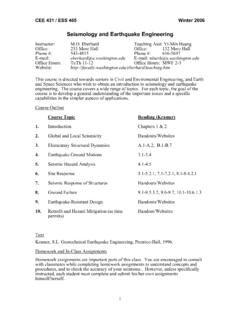
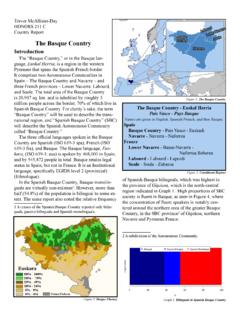
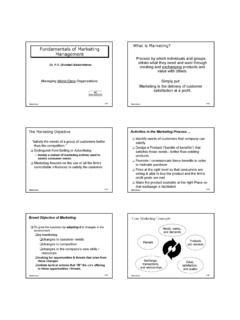
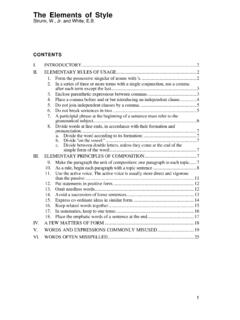
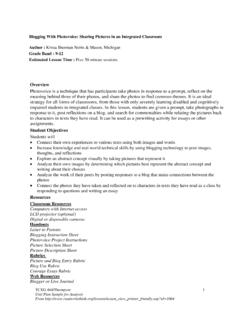
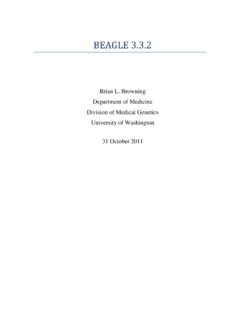


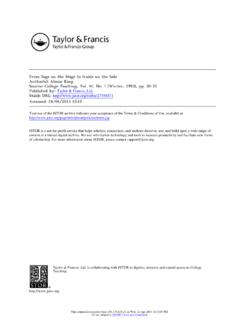
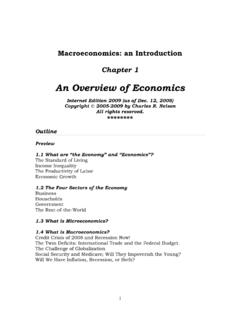

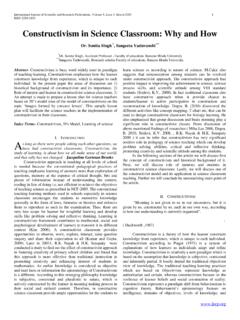
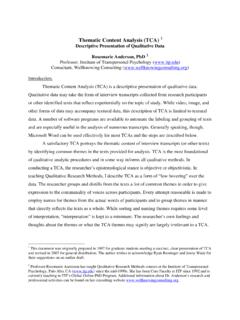
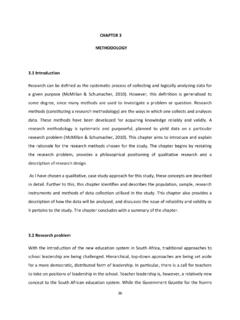

![arXiv:2003.02320v6 [cs.AI] 11 Sep 2021](/cache/preview/3/e/e/a/4/6/1/8/thumb-3eea4618b88802e111144b3d89284611.jpg)
